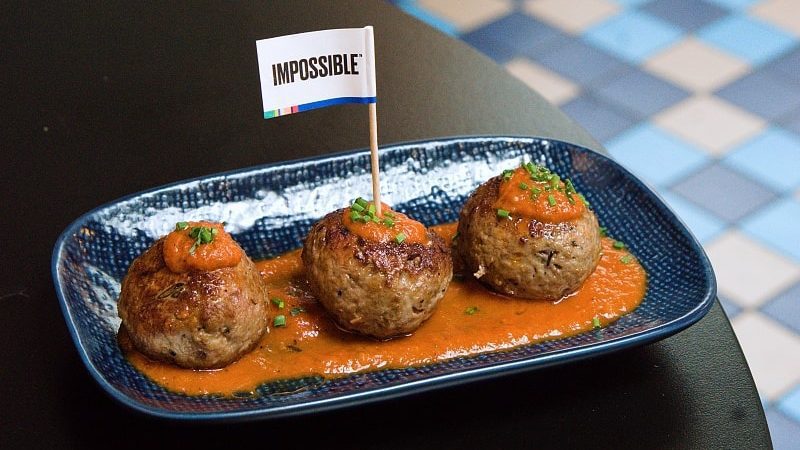Looking for vegan protein sources? Find a complete list of 25 plant-based protein-rich food that can serve as the perfect substitutes for traditional protein sources.
The most frequent question directed at vegans has to be, “But where do you obtain your protein from?!” While it’s true that people typically pick animal products as their primary source of protein, there are a number of vegan protein sources. Vegan protein sources are available in all kinds of types and tastes. Not just that, plant-based protein sources are enough to quench our body’s protein needs. While the common protein sources are beef, chicken, pork, fish, turkey, and shellfish, vegetarians go for eggs, milk, and yogurt for their protein requirements. However, a vegan refrains from all kinds of animal meat and animal by-product.
The good news is despite so many restrictions, there are a number of delicious, high-protein plant-based alternatives that vegans can turn to. Undoubtedly, a vegan diet demands certain planning and research at first. However, once you get the hang of it, you’d realize there is an amazing vegan alternative for everything you have given up.
It is natural to picture a big portion of meat or eggs when someone says protein, but that doesn’t necessarily mean that protein can only be obtained from animal-based food items. It is important to note that there are several plants that are pretty high in protein. So if you have been thinking of switching to a vegan or vegetarian diet or you have just made the switch, let this article serve as a reminder that you can obtain a balanced meal without meat. In fact, consuming a whole plant food diet can deliver help you protect yourself from a variety of chronic illnesses and give you a better lifestyle altogether. But the real question is why do we need protein?
Why do we need protein?
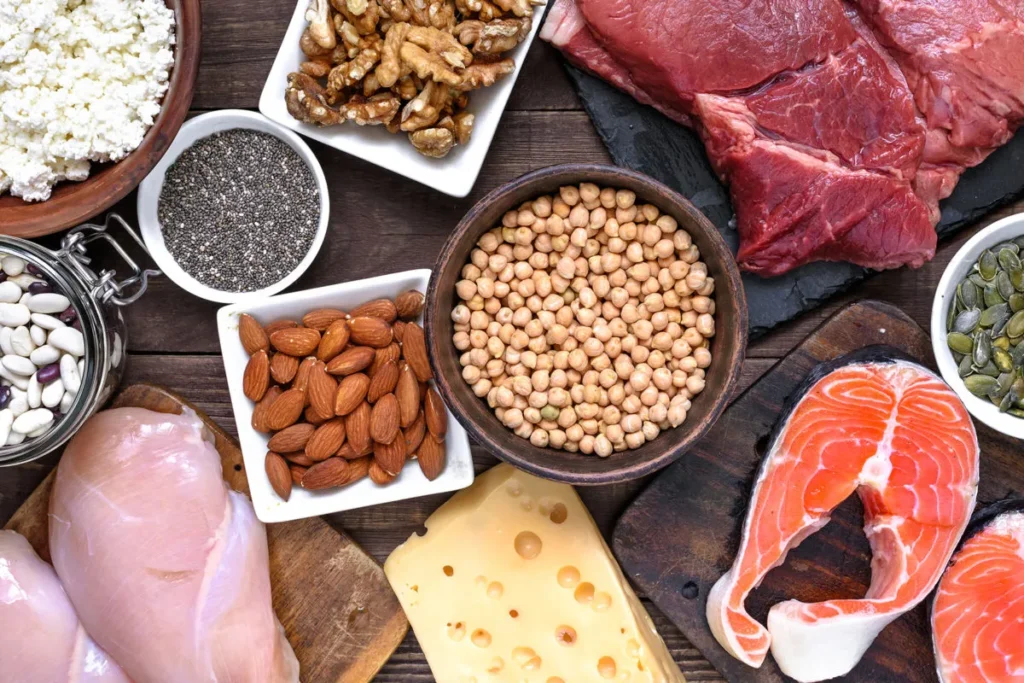
Protein is an incredibly essential element of any balanced diet. In fact, it makes up about 17 percent of your body’s weight. Also, it is a primary component of our skin, muscles, and internal organs, particularly the heart and brain. Not just that, protein helps in strengthening hairs and nails and the functioning of eyes as well. Along with that, protein helps in the production of antibodies that work to boost the immune system that in turn works to fight infections, deliver energy, and assist in blood sugar regulation, and fat metabolism.
Food items containing protein also help in breaking down 22 naturally occurring amino acids, which are the building blocks of protein; nine of them are referred to as essential amino acids. The body cannot produce these essential amino acids, therefore it is important to consume them from protein-rich food items. Protein is also rich in a number of vitamins and minerals like zinc and vitamins. As a vegan or vegetarian, it’s very crucial that all these essential amino acids are mindfully incorporated into the diet for optimum nutrition. Typically, a healthy individual should strive to eat around 50 to 70 grams of protein in a day.
Honestly, the only trick to reaching the perfect portion of protein in a vegan diet is to combine various protein-rich grains with various vegetables and pulses. Yes, the trick is to be mindful about incorporating a balanced meal that includes everything from beans and rice to tofu and broccoli. When it comes to a protein-rich vegan diet, Variety is vital.
The best vegan protein sources
Protein consumption can be a serious matter of concern for vegans, since they refrain from traditional sources of protein, More so, because apart from avoiding meat, vegans take their diet up a notch as compared to vegetarians because they also cut off all kinds of animal by-products from their diet which includes protein-rich products like dairy and eggs.
However, despite the multiple dietary restrictions, maintaining a balanced protein-rich vegan diet is not a problem. A balanced vegan diet should be incorporated with protein-rich plant foods. Although, acquiring sufficient protein might appear to be challenging at first but there is a myriad of vegan protein sources. The best vegan protein sources include food items like lentils, and chickpeas, along with several whole grains like oatmeal.
Below, find a complete list of 25 plant-based protein-rich food that can serve as the perfect substitutes for traditional protein sources, broken up into six categories:
1. Legumes
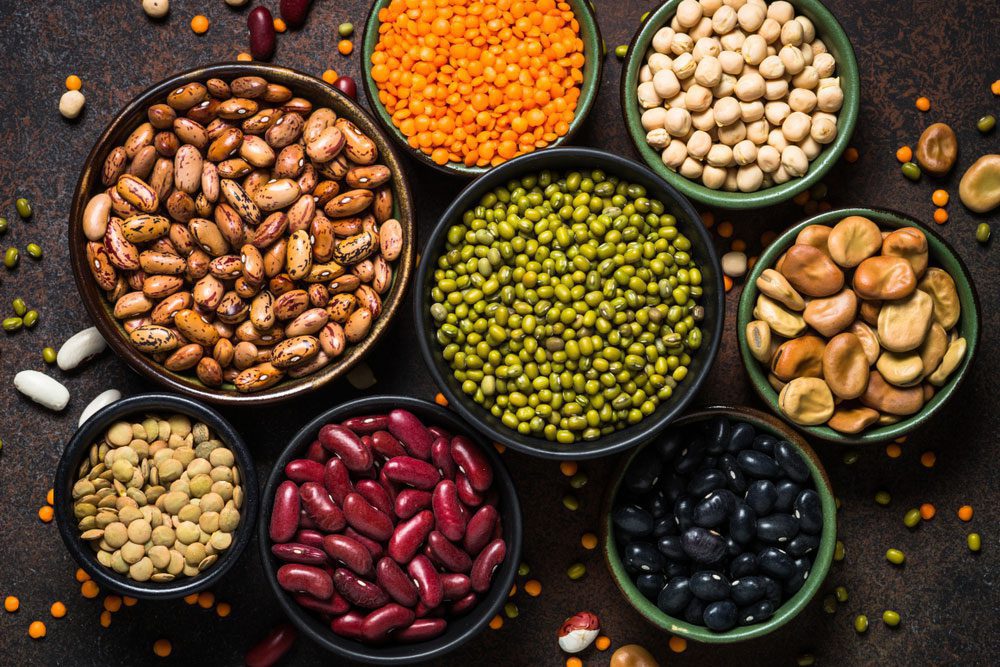
Legumes and beans are very commonly consumed around the world as incredibly rich sources of fiber and several essential minerals and vitamins. Along with that, they are major sources of vegan protein. Legumes commonly include beans, lentils, chickpeas, peas, and peanuts, they can be effortlessly incorporated into soups, salads, tacos, and many other everyday dishes. Apart from providing protein and vitamins beans and legumes deliver a number of health benefits as well which include, reducing cholesterol, lowering blood sugar levels, and boosting the growth of helpful gut bacteria.
Lentils are pretty easy to incorporate into daily lunch or dinner recipes. You can add them to your choice of stews, curries, rice, or even salads to boost that extra punch of protein. For instance, you can go for chickpea paste or hummus in your breakfast or lunch sandwich to provide yourself a protein-rich substitute for butter. Another legume-rich alternative can be peanut butter which delivers around 3.6 grams of protein per tablespoon. Peanut butter and whole wheat bread are completely healthful protein snacks. Here is a list of protein content in commonly consumed legumes:
- Chickpeas: 1 cup cooked has around 14.5 grams of protein
- Lentils: 1 cup cooked has around 17.2 grams of protein
- Beans (black, pinto, kidney, lima): 1 cup of black beans have around 8.9 grams of protein
- Peas: 1 cup has around 15.1 grams of protein
- Peanuts: 1 serving size (28 grams) has around 7 grams of protein
2. Soy
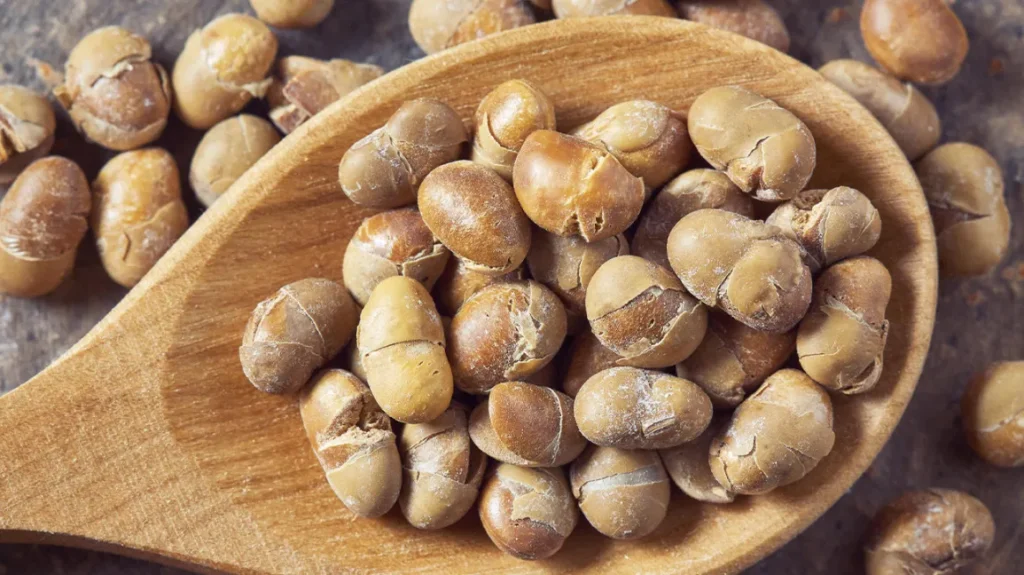
Another major vegan source of protein is soy. With a variety of soy products, it is in fact the primary source of protein for those who refrain from dairy. Soy-based protein-rich food includes soy milk, tofu, tempeh, and so much more. People even go for soy-based mock meat which is full of protein and tastes like meat. In fact, people also incorporate soy-based protein powders, as workout supplements for their protein requirements. Apart from protein soy-based food is also full of vitamins and minerals.
Plus, soy-rich products are flooded with satisfactory levels of calcium and iron; this is what makes them the very best replacements for dairy products. For people who find quitting meat and cheese a little too hard can try tofu as their meat substitute. Go for a tofu sandwich or soup or try it as a meat substitute in dishes similar to kung pao chicken or sweet & sour chicken, it’s healthy and its delicious. Here is a list of common soy-based products and their protein content:
- Soy milk: 1 cup has around 6.3 grams of protein
- Tempeh: 1 cup has around 33.7 grams of protein
- Tofu: 3.5 ounces (100 grams) have around 10.1 grams of protein
- Edamame: 1 cup has around 16 grams of protein
3. Nuts and nut butter
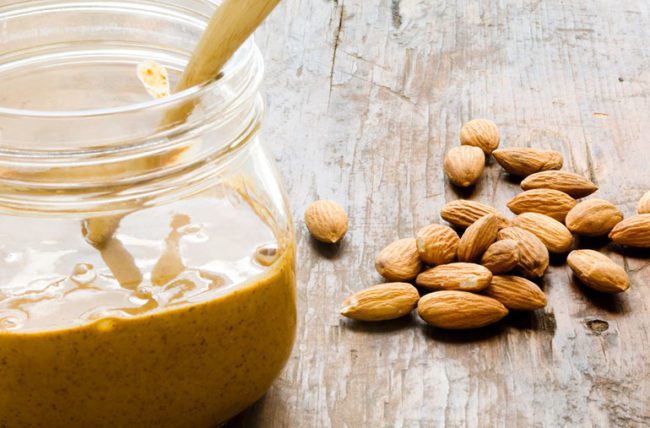
Apart from healthy and unsaturated fats, nuts and seeds are an excellent source of protein. In fact, nuts and nut butter are incredible sources of several minerals, vitamins, and antioxidants apart from plant-based protein. While you can pick nuts like almonds and eat them as a snack individually or you can go for a nut-based trail mix. Apart from that nuts can be added to pretty much all kinds of recipes. However, if you don’t like your dishes to be a little too nutty you can go for nut butter like almond butter or even cashew-based butter. You can also go for almond milk as an excellent milk substitute. Here is a list of common nuts and their protein content:
- Almonds: 1 cup of dry roasted has around 29 grams of protein, or two tablespoons of almond butter contains 6.7 grams of protein
- Cashews: 1 cup of dry roasted has around 21 grams of protein, or two tablespoons of cashew butter contains 3.9 grams of protein
- Pistachios: 1 cup of dry roasted has around 26 grams of protein, or two tablespoons of pistachio butter contains 6 grams of protein
- Walnuts: 1 ounce (28 grams) of dry roasted has around 4 grams of protein or two tablespoons of walnut butter contains approximately 5 grams of protein
4. Seeds
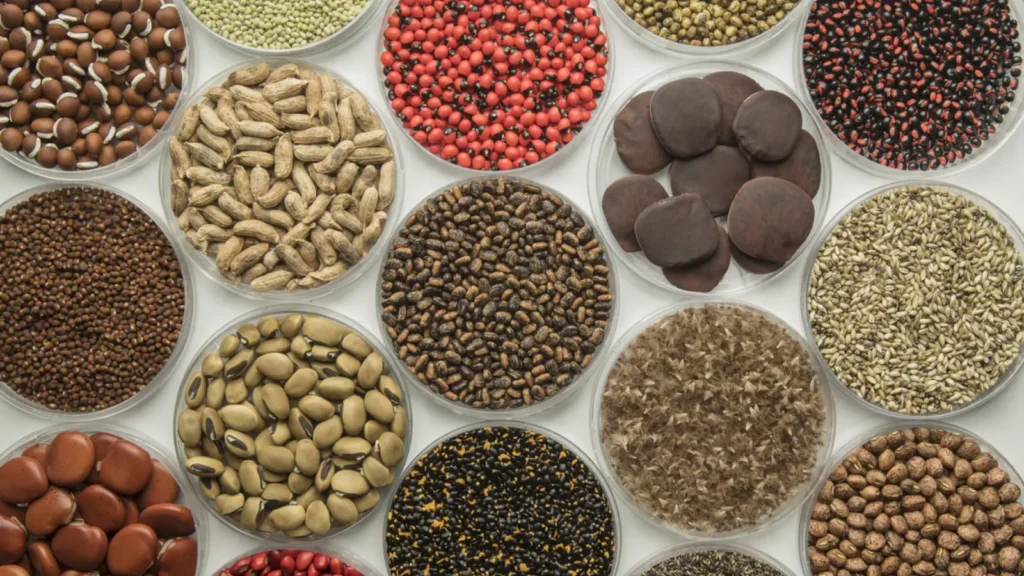
Studies have shown that by weight hemp seeds deliver protein as much as beef and lamb would. Therefore, just 2 to 3 tablespoons of hemp seeds, have the capacity to provide about 11 whole grams of protein. Seeds are usually a complete protein source, which means it is a source of essential amino acids. Apart from hemp seeds, there are several other seeds that are full of protein like sunflower seeds, flax seeds, and chia seeds.
Although one tablespoon of chia comprises merely 3 grams of protein, it’s essential because it is a complete protein. Seeds like chia seeds are full of healthful nutrients like omega-3 fatty acids, carbohydrates, fiber, antioxidants, and even calcium. Seeds can be referred to as protein heroes, in a plant-based diet. You can add seeds to your daily smoothies, puddings, and even cereal or yogurt. Here is a list of commonly consumed seeds and their protein content:
- Sunflower seeds: 3.5 ounces (100 grams) has around 11.67 grams of protein
- Flax seeds: 1 cup has around 30.7 grams of protein
- Chia seeds: 3.5 ounces (100 grams) has around 15.4 grams of protein
- Hemp seeds: 3.5 ounces (100 grams) has around 30 grams of protein
5. Vegetables
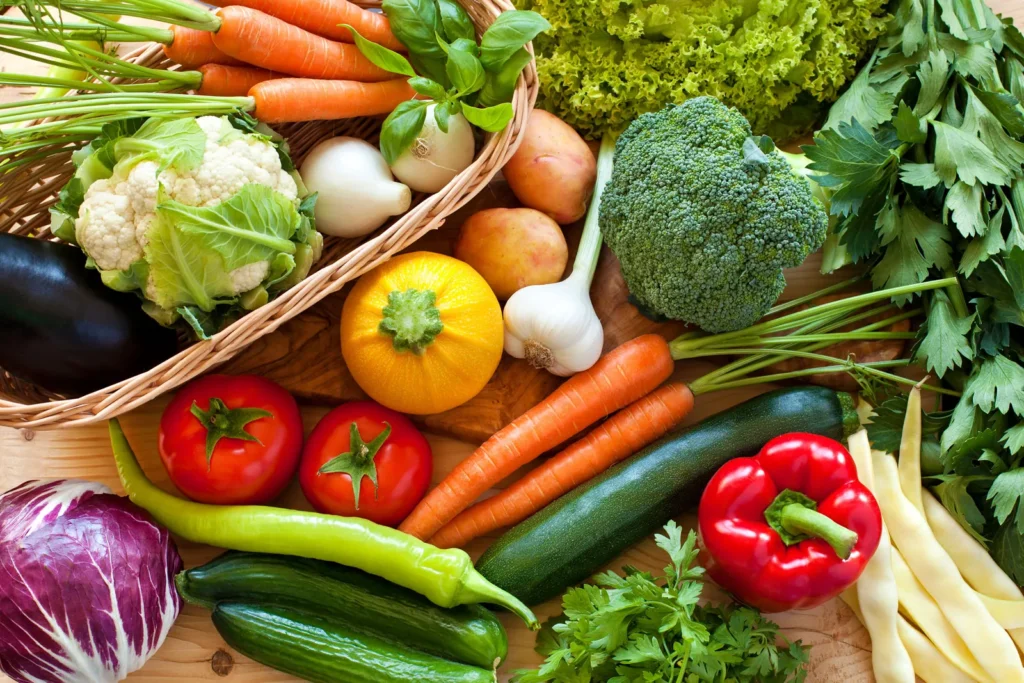
Although vegetables aren’t the richest sources of protein, however, if you have been consuming a rich vegetable diet, you can get an excellent amount of protein from it. For instance, if you consume one cup of cooked Brussels sprouts you can add up to 4 grams of protein right away.
Other vegetables like sweet yellow corn can deliver up to 5 grams of protein into your diet. Leafy greens like spinach and bok choy have a very high protein content and they are low in calories. In fact, just one medium stalk of broccoli has about 4 grams of protein, five medium mushrooms can offer about 3 grams of protein. To incorporate vegetables into your diet you can incorporate salads, soups, or go for a number of dishes. Here is a list of other vegetables and their protein content:
- Spinach: 3.5 ounces (100 grams) contains about 2.35 grams of protein
- Broccoli: 3.5 ounces (100 grams) contains about 2.7 grams of protein
- Kale: 3.5 ounces (100 grams) contains about 3.54 grams of protein
- Green beans: 3.5 ounces (100 grams) contain about 2.35 grams of protein
People incorporate grains in their diet as a major source of carbohydrates, B-vitamins, and plenty of protein. It must be noted that whole unrefined grains can provide a lot more protein per carb. Although grains are primarily a source of carbohydrates, they serve as an immediate protein punch for your diet. If you add just half a cup of oats you can up to 5 grams of protein to your diet.
6. Grains
Just a quarter cup of barley or quinoa can deliver up to 5-6 grams of protein. You can also add grains like teff or millet to mix up your diet. To incorporate grains into your diet, you can go for whole wheat bread, and pasta, and add grains like quinoa to your pasta, soups, and even stews. Here is a list of common protein-rich grains and their protein content:
- Whole-wheat bread: Once sliced has around about 6 grams of protein
- Whole-wheat pasta: 1 cup has around about 12 grams of protein
- Quinoa: 1 cup contains about 8 grams of protein
- Old fashioned oats: 1/2 cup raw oats contains 10 grams of protein
What are the complete sources of protein for vegans?
Complete sources of protein are protein-rich food items that contain all the nine essential amino acids. Since our body does not produce these amino acids, it is very essential to incorporate them via dietary sources. For non-vegans, primary sources of complete protein are steak and eggs, while vegans go for edamame, tempeh, tofu, chia seeds, hemp seeds, and quinoa as complete sources of proteins.
Plant versus animal protein
We have already established that our bodies do not produce the essential amino acids and their consumption is incredibly important. When it comes to their intake, it is comparatively effortless when you consume animal protein. That being said, it is important to understand it is not impossible to obtain all the essential protein through a plant-based diet. Yes, it might require a little mindfulness but it is definitely possible.







